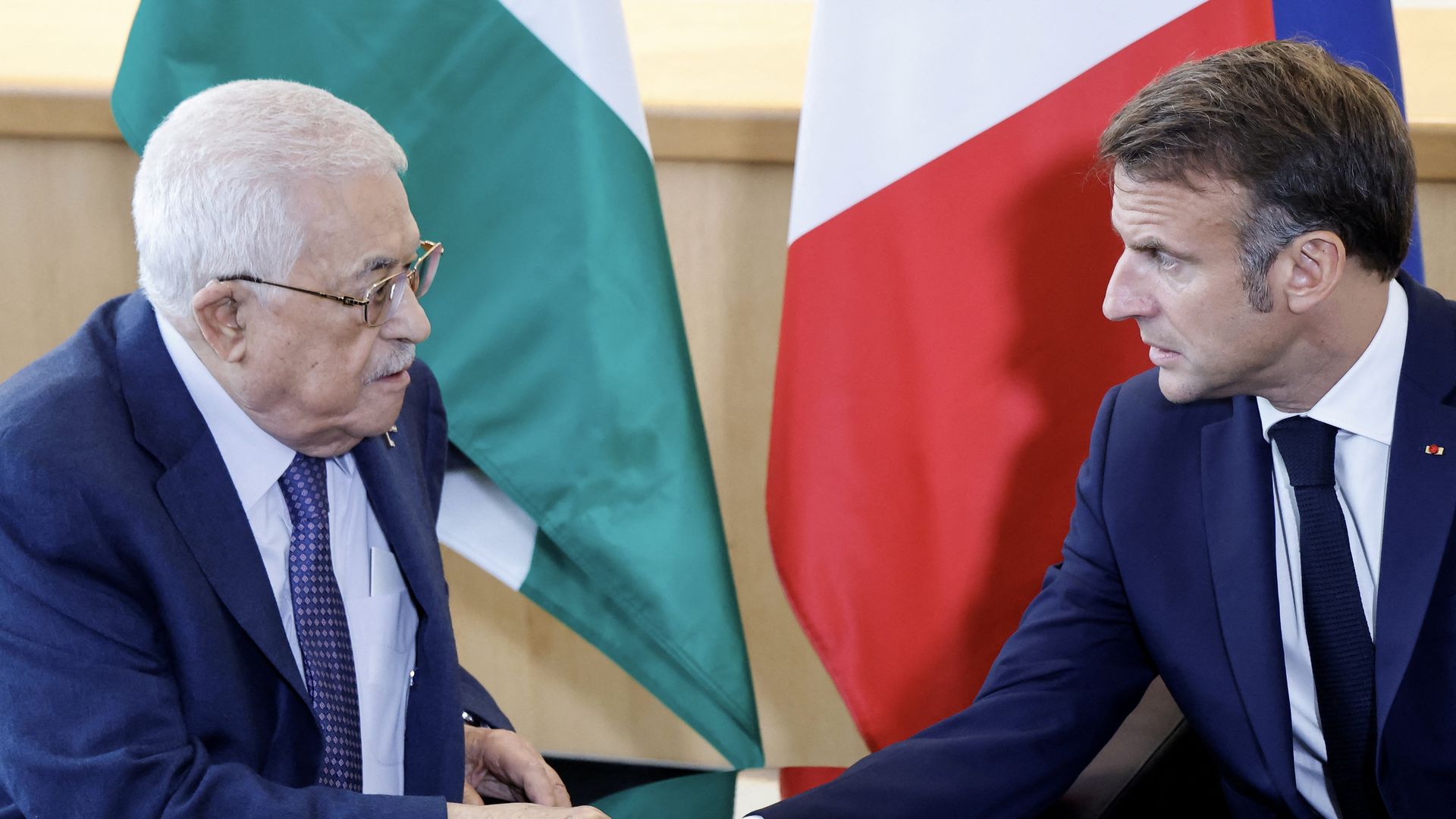In The Name Of Allah The Most beneficial and The Most Marciful
In a move that could reshape global diplomatic alignments, French President Emmanuel Macron has once again announced his intent to officially recognize the State of Palestine. The formal declaration is expected to come during the United Nations General Assembly session this September. Macron’s strategic timing is no accident , he hopes that by making this announcement on such a prominent international stage, other nations might follow France’s lead.This isn’t just another diplomatic gesture. France, alongside Germany, represents the backbone of the European Union. Since the UK’s exit from the EU, France has emerged as one of the most influential voices within the bloc. Macron’s term lasts until May 2027, giving him ample time to transform symbolic recognition into actionable policy — from opening an embassy to deepening diplomatic and bureaucratic ties with Palestine.
But recognition isn’t just about flags and embassies.It signals a serious challenge to the prevailing narrative pushed by Israel and its staunch allies, most notably the United States. France’s potential recognition adds to growing global pressure a wave of legitimacy that seeks to empower Palestinians with sovereign rights rather than treating their struggle as a footnote in Middle Eastern politics.
The Historical Hypocrisy
Ironically, critics of Palestinian statehood often label it as “rewarding terrorism,” citing groups like Hamas and the events of October 7 as evidence. Yet, history tells a more complex story.
The U.S. itself was born out of an armed rebellion against British colonial rule — George Washington and the revolutionaries were considered rebels and even terrorists by the British Empire. Likewise, Israel’s formation was backed by violent Zionist militias like the Irgun, Haganah, and Lehi — groups notorious for orchestrating attacks on both Arab populations and British officials, including the infamous Deir Yassin massacre and the King David Hotel bombing.
Lehi, which assassinated UN mediator Count Folke Bernadotte (a man who saved thousands of Jews from Nazi concentration camps), later saw its leaders integrated into Israel’s government and military. One of them, Menachem Begin, even became Prime Minister. These groups, once branded as terrorists, became the architects of modern Israel.
If the global community accepted Israel despite such violent origins, is it not hypocrisy to deny Palestinians their nationhood due to today’s resistance movements?
Global Recognition: Numbers Speak Louder Than Politics
Currently, 147 of the 193 UN member states officially recognize Palestine as a sovereign state. France would be the 148th. When viewed by population size rather than number of countries, the support is even more staggering — over 83% of the world’s population lives in countries that support Palestinian statehood.
South America, much of Africa, large portions of Asia, and growing parts of Europe have moved in support of Palestinian sovereignty. Norway, Sweden, Ireland, Spain, and even historically neutral countries are stepping forward. While the United States and a few allies remain reluctant, the momentum is shifting rapidly.
A Calculated Realignment in the West
France and other EU countries aren’t merely making moral decisions. They are calculating their geopolitical future. The majority of the world’s future lies in the Global South ,Asia, Africa, Latin America , regions that overwhelmingly support Palestine. European leaders understand that aligning with 83% of the global population is not just morally sound, but strategically wise.
Moreover, instability in the Middle East has ripple effects. Decades of Western interventions in the Arab world have triggered massive waves of migration into Europe, creating demographic and political shifts. Many EU countries now face increasing pressure from both liberal and conservative factions to resolve these root causes.
Recognizing Palestine is one step toward addressing that instability.
Diplomatic Domino Effect
Should France proceed, it could unlock broader access for Palestinian diplomatic missions, allowing them to fundraise, build stronger consulates, and perhaps even inch closer to becoming a full UN member. And don’t forget — France holds a permanent seat on the UN Security Council. That gives its recognition weight and credibility.
If the UK follows France’s lead, the only remaining permanent veto power blocking Palestine’s full UN membership would be the U.S. — a position that may become politically unsustainable if global pressure continues to mount.
America and Israel: A Growing Isolation
Even America’s allies are becoming wary of its heavy-handed Middle East policy. Under Donald Trump, and possibly again in 2025, the U.S. seems increasingly willing to treat allies as vassals rather than partners. Canada, the UK, and France are beginning to assert more independent foreign policies, especially on humanitarian issues like Palestine.
These nations realize that tying themselves too closely to an increasingly unpopular and militarized Israeli policy risks alienating the majority of the world , a world that is shifting eastward in power and influence.
The Stakes This September
President Macron had previously scheduled a formal recognition of Palestine in June, but the plan was derailed, allegedly under pressure from Washington and Tel Aviv. Will September be any different?
That depends on how strongly the EU, especially countries like France and Germany, commit to this realignment. Recognition alone won’t end the occupation, but it could significantly shift the diplomatic landscape, putting more pressure on Israel to halt its expansionist policies and genocide-like tactics in Gaza.
The Moral Imperative
This isn’t just about diplomacy or population math. It’s about justice.
The same powers that drew arbitrary lines in the Middle East, that enabled settler-colonial regimes, and that profited from decades of war and displacement now owe a moral debt. France, the UK, and others were instrumental in shaping this region. Their recognition of Palestine won’t undo the past , but it’s a necessary step toward restoring balance.
As France prepares for a possible turning point in September, the world watches closely.
Will global conscience finally overcome political convenience?
Will justice and legitimacy triumph over fear and lobbying?
But history is moving and this time, it may be moving in Palestine’s favor.
If You Fell Enjoy this, Stay connected with us for more insightful posts, and don’t forget to share this article with your friends.


